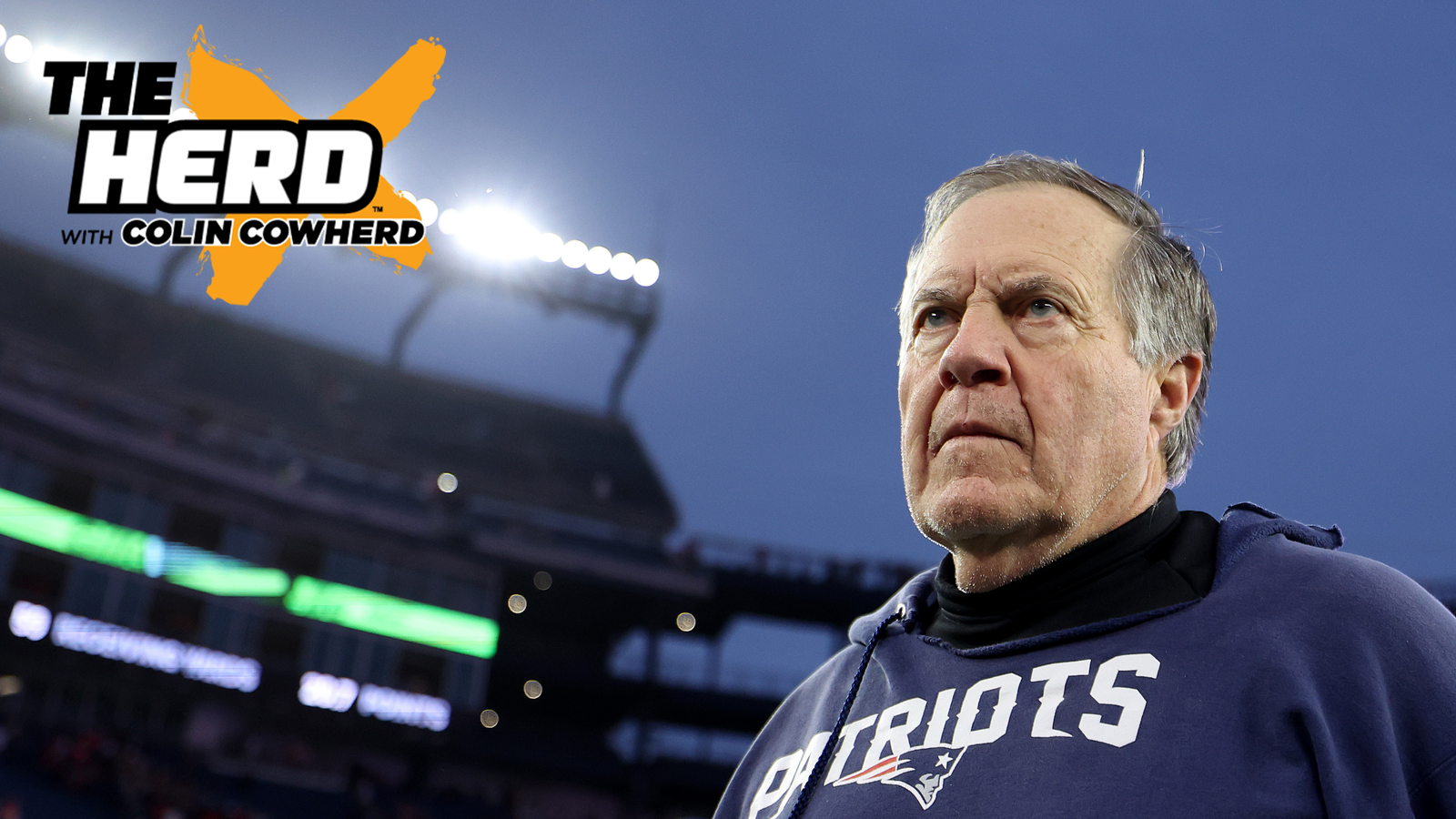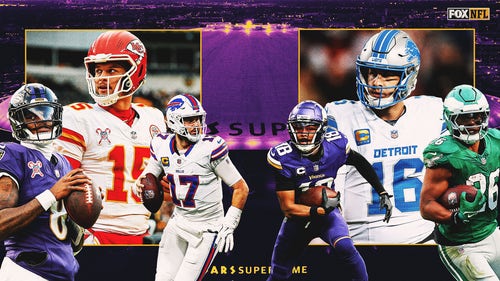
Bill Belichick’s legacy is complicated, but his greatness is cemented
Bill Belichick's tenure with the New England Patriots has hit its expiration date.
After 24 mostly wonderful seasons, it didn't end well.
Belichick remains the greatest coach of all time and arguably the greatest general manager of all time, even after falling into this patch of ugliness. And, my goodness, has it been ugly. He is 29-38 since the departure of Tom Brady. So many of the qualities that fueled Belichick's success have backfired, coming to a head in his exit, with owner Robert Kraft and Belichick agreeing to a parting of ways.
I'll get to all that. But first, let's talk about what Belichick has cemented in his tenure with the Patriots: his greatness.
He has won 302 regular-season games and an NFL-record 31 postseason games, including six Super Bowl victories, the most by any coach. He was the master of the postseason, with the most Super Bowl appearances as a head coach (nine), and the master of the regular season, with the most divisional championships (17).
"I think he's an incredible coach. He's the best coach, in my belief, in the history of the game," said Tom Brady, the greatest player in the history of the game.
What makes Belichick so great? He blended an unwavering philosophy that included a rare willingness to change. In other words, Belichick never changed and always changed. He has always been demanding, has always taught the fundamentals of the game in the same way and has always emphasized immense preparation.
But the game is always changing and evolving. And to get to year 24, Belichick understood that he'd have to adapt his scheme and his types of players to accommodate the league-wide shifts — and get ahead of them.
The NFL is a copycat league. And for many decades, other teams copied Belichick. All of them. And not just his defenses. Belichick's offense, defense and special teams units did things that everyone raved about and, when possible, attempted to emulate. And even with 31 teams attempting to do what Belichick did, he remained better than everyone.
Until now. Until the last few years.
For all that success, Belichick has struggled without the best player he has ever coached — and the best player anyone has ever coached: Brady.
Their legacies are wrapped together so tightly that they will never be untangled, no matter how many talk-show minutes are dedicated to debate over who deserves more credit for the team's success.
It's obvious now that Brady deserves more credit for the team's success during the dynasty, but that shouldn't lessen the way Belichick maximized his rosters, both in acquiring the right personnel (as GM) and in deploying those players on the field (as coach). If anything, Brady's impact shows not that Belichick was unimportant. No, it shows merely that great players, and particularly great quarterbacks, are more valuable than the greatest coaches in the NFL. Brady had more influence than Belichick could ever have hoped to have. And I think that's true now more than ever — that this is a players' game — including when Belichick took over in 2000.
"It was very different when I was in there, because I could control a lot of the outcome," Brady said during an episode of the "Let's Go" podcast. "When I'm sitting here watching from afar, I realize, God, there's a lot of variables. There's a lot of things that need to go right in order to have team success. I was a part of a lot of those teams and I didn't take any of those things for granted. I needed a great defense. I needed a great kicker. Obviously, I needed a great coach. I needed great receivers and a great O-line. If I was going to be successful as a player, I needed all those things."
Brady's Super Bowl win with the Buccaneers doesn't detract from Belichick's résumé. It simply contextualizes it.
Perhaps it's hubris for Belichick not to have recognized Brady's value — and the value of the quarterback spot, in general — when the Patriots decided not to make the QB feel welcome anymore in New England. For financial and emotional reasons, Brady ultimately had enough of Belichick's methodology. And Belichick, who has a stronger sense of the game's trends, couldn't see how big a loss his team took when it lost Brady in 2020.
Belichick had 20 years of success by selling on players a year early rather than a year too late. He thought he was doing that with Brady. But instead, Belichick was demonstrating a lack of awareness of just how exceptional his quarterback was. So, one of Belichick's tried-and-true philosophies (get out a year early) failed him.
It was the first miscalculation of many that led to this point. And though much has been made of the more recent bungling of the coordinator jobs (especially with Matt Patricia and Joe Judge in 2022), the biggest failure of Belichick's career was letting Brady go and failing to replace him with the necessary pieces.
[Who replaces ‘Positive Pete’ Carroll after his amazing run with Seahawks?]
Because Brady's departure left the team — with 20-20 hindsight — without the necessary offensive brilliance that Belichick needed as a complement. There was a decline under Josh McDaniels, Cam Newton and Mac Jones. Once McDaniels left, nothing held up the offensive unit from total collapse. And that's what we saw in 2023.
Ruin.
Belichick piled on his biggest mistake (Brady's departure) with mistakes that followed thinner logic. Rather than embracing modernization and replacing McDaniels with a competent coordinator (maybe from Sean McVay's coaching tree), Belichick asked Patricia and Judge not just to coach the offensive side of the ball (with which they had limited experience), but also to rebuild the offensive scheme to something they'd never coached in New England (incorporating McVay's system).
It felt like more hubris — Belichick's ambition exceeding what was possible.
There is no shortage of examples of Belichick-isms backfiring over the last four years, but they all show up on the offensive side of the ball — from quarterback to offensive line to receiver. In staffing (both coaching and front office). In trades. In the draft. In free agency.
On defense in 2023, however, you saw a product that is as Belichickian as ever. Even with two of his most important players suffering injuries (edge Matthew Judon and cornerback Christian Gonzalez), Belichick inserted the next men up and coached them up. Even with the offense letting the team down week after week and the team falling out of playoff contention, Belichick kept his defensive players motivated.
The Patriots didn't have a single player make the Pro Bowl despite allowing the sixth-fewest yards per game on defense. If the offense weren't so incompetent, then maybe this team would still be .500. But there have been so many coaches fired for one-sided coaching — for favoring one unit over the other.
And that's what has happened in New England.
Belichick's coaching has erased several mistakes he has made on the defensive side of the ball. But the mistakes he made on offense — which Brady had once covered up — are now highlighted amid this losing season.
Belichick's next chapter is of the utmost importance for him. His legacy will remain intact. He's the G.O.A.T, but …
But.
For a long time, that'll be how Belichick's tenure will be remembered: He's the GOAT … but it's a shame how it ended in New England. He's the GOAT … but, man, those last four seasons were horrendous.
Though Belichick is 71, I believe he'll coach again, even if he ends up on TV for a year. I believe he wants another Super Bowl to go with the 14 victories he needs to surpass Don Shula and become the NFL's winningest coach. All he really needs is a few winning seasons to help the NFL world forget about the four when he sunk the Patriots.
This next phase will go a long way toward getting rid of all the ifs and buts from his legacy. If Belichick turns around a different franchise, he'll remove the complications from his legacy. If he sinks another franchise, well, his legacy only gets worse.
Prior to joining FOX Sports as the AFC East reporter, Henry McKenna spent seven years covering the Patriots for USA TODAY Sports Media Group and Boston Globe Media. Follow him on Twitter at @henrycmckenna.










